
The University of Massachusetts’ Residential Life solicitation policy – a policy barring all individuals, including students living in the dormitories (except for those students given exemption by Res-Life) from distributing any literature door-to-door – has come under fire recently from members of the Student Government Association and the Western Massachusetts Offices of the American Civil Liberties Union (ACLU) alike.
Heading the challenge for the students is SGA Attorney General Kyle Howard, who requested the ACLU review UMass housing’s solicitation policy, after feeling it had “serious First Amendment implications,” as reported in the Massachusetts Daily Collegian Sunday. After reviewing the case, Director of the ACLU’s Western Mass. Offices Bill Newman wrote a letter Friday addressed to Eddie Hull stating the policy was found to be in violation of the United States Constitution.
Administrators, including Hull, currently await the recommendations from the in-part student committee created by Hull to review the solicitation policy, which should be available Friday morning, as reported in the Collegian Sunday. As this occurs, members of the SGA continue to push administrators to discuss the challenges made to the policy.
SGA Senate Speaker Jarred Rose met with Vice Chancellor of Student Affairs and Campus Life Jean Kim Tuesday in order to go over the challenges to the solicitation policy. According to Rose, Kim said many other universities have the same policy in place, though this assertion was unable to be independently verified by the Collegian in time for publication.
Rose said that the next step in the University’s review process of the constitutionality of the policy and the ACLU’s assertions lies with Brian Burke, the associate counsel for the University. Burke will be reviewing the letter from the ACLU as well as the solicitation policy in order to decide how the University should proceed.
According to the ACLU’s letter to Hull, one of the issues they take with the policy comes with the concept that not allowing students go door-to-door talking to students and distributing fliers could be a violation of students’ First Amendment rights.
Rose said he had only learned of the policy last year during the mid-autumn SGA election.
After he learned of the policy, he requested records of the University’s policy-making process through the Freedom of Information Act. He said that UMass is a public institution, which makes its public meetings records public information unless otherwise protected. He said his FOIA request was returned, with information that no records existed concerning the decision-making process behind the implementation of the solicitation policy and this “surprised” him.
SGA members spoke about how the policy has thus far affected their organization since its seemingly shadowy implementation last year.
The solicitation policy states, “This policy is established to promote sharing of important information and at the same time enhance the safety, security and privacy of students living on campus.”
As it reads now, the solicitation policy bars students from “dorm-storming” or talking with constituents by going door-to-door in the dormitories, as they run for elected office to the SGA.
“SGA elections and a lot of the RSOs have for years run off of door-to-door campaigns,” said Rose. “Our models for how to do this are really based off of that happening.”
According to Rose, voter participation in student elections and membership in RSOs have dropped off significantly.
“On average, our voter turnout is between 2,500 and 3,000 [voters per-election],” said Rose. “We really put a lot of work into getting the election itself a high turnout rate, and we ended up dropping 1000 votes,” said Rose about last fall’s elections. The total turnout for the fall election was about 1500, Rose said.
“It’s not like you’re cornering them, but you are able to have face-to-face time with them, and they are able to shake your hand and learn about you firsthand,” said SGA Student Trustee Tina Kennedy.
According to Kennedy, “[RSOs] have been saying that the solicitation policy affects them [from] getting people to join their groups, because they are used to flyering in the dorms.”
She believes this has contributed to high turnout rates at the RSO expos over the past year.
“They are showing up because there is no other option,” said Kennedy.
To make up for the loss in face time created by the solicitation policy, the SGA has been attempting to ramp up outreach through social media. Kennedy explained that the SGA outreach coordinator has been working heavily with Twitter.
“The administration, especially for our elections, expected that social media would be much more of a help than it was,” said Rose. “It was an additive, but it does not replace what is lost.”
“You don’t know the issues unless you know the students,” said Kennedy. “Students are most comfortable in their dorms. That is where they are going to open up.”
Zachary Weishar can be reached at [email protected]. Alyssa Creamer can be reached at [email protected].








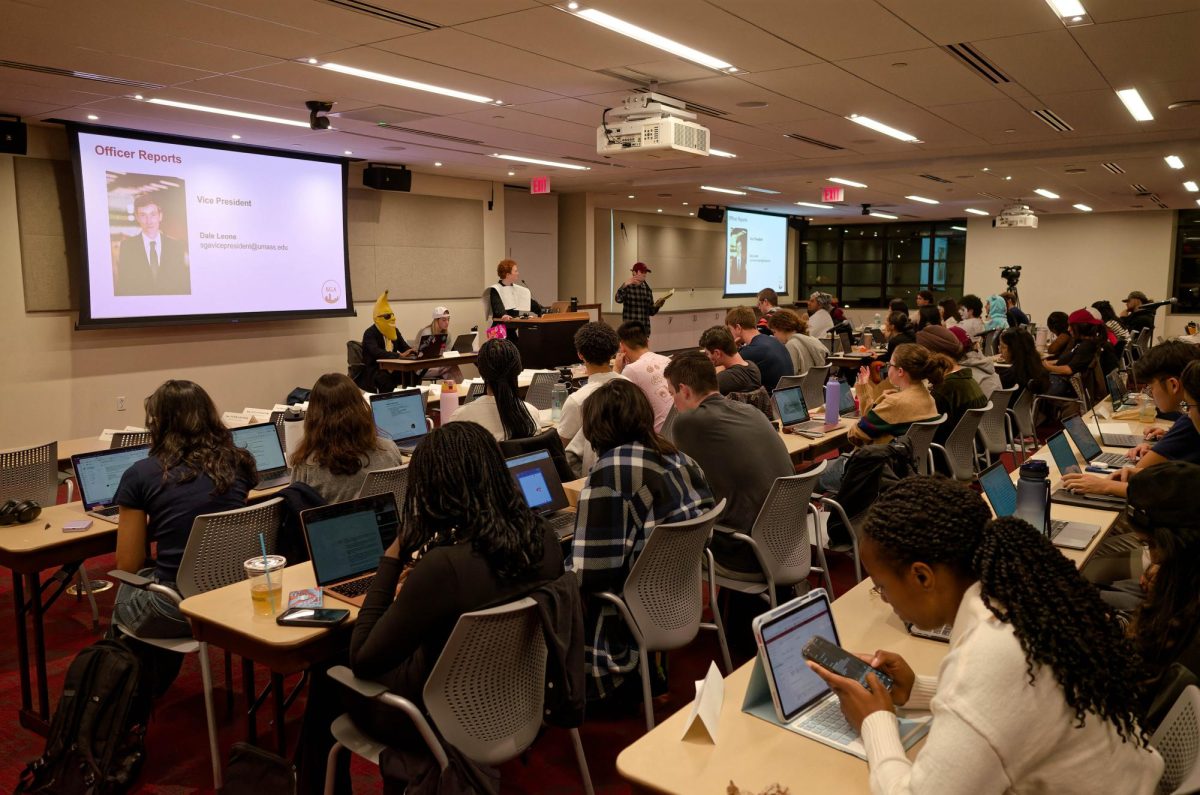
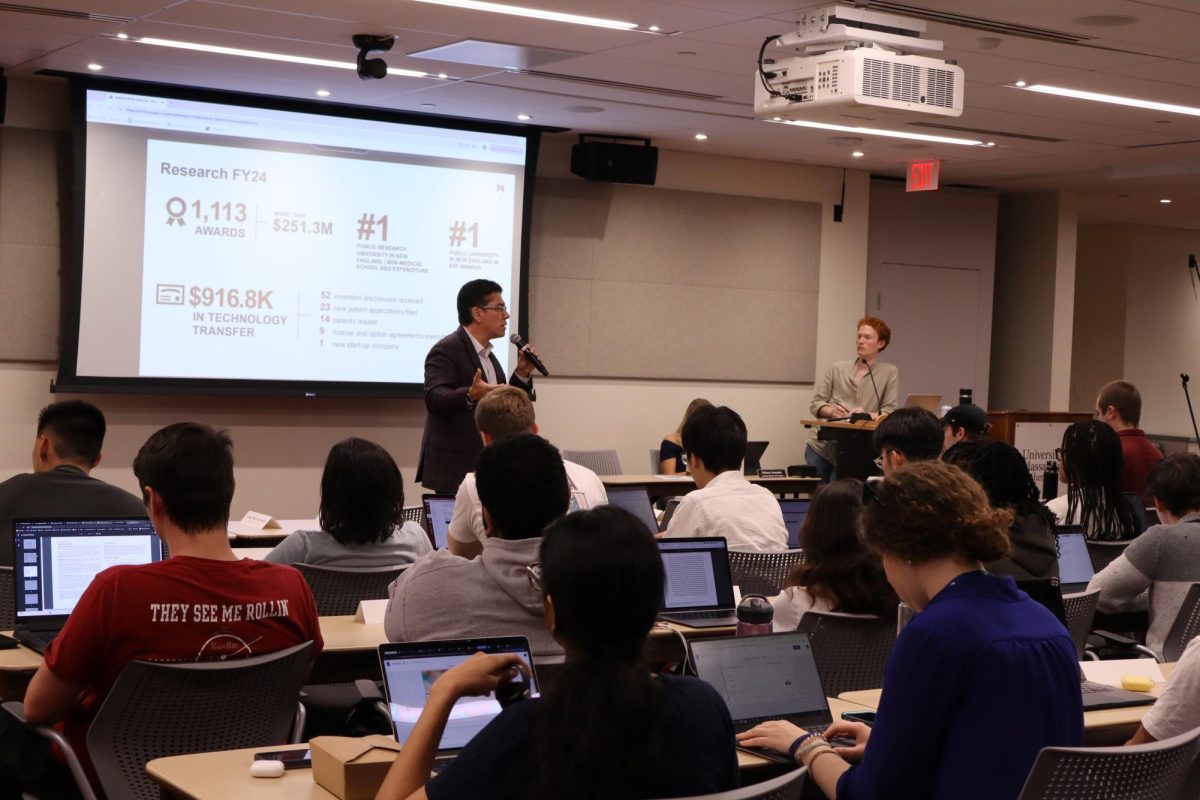
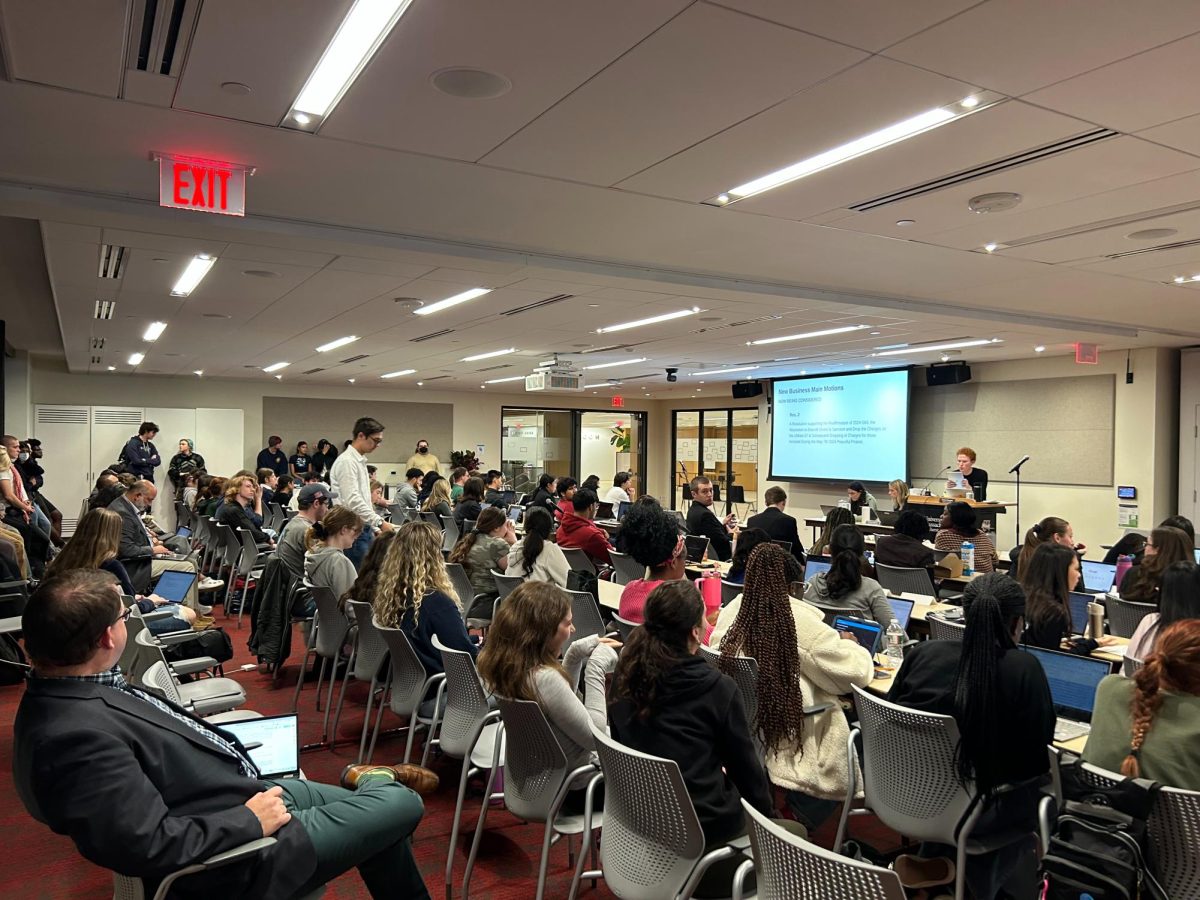
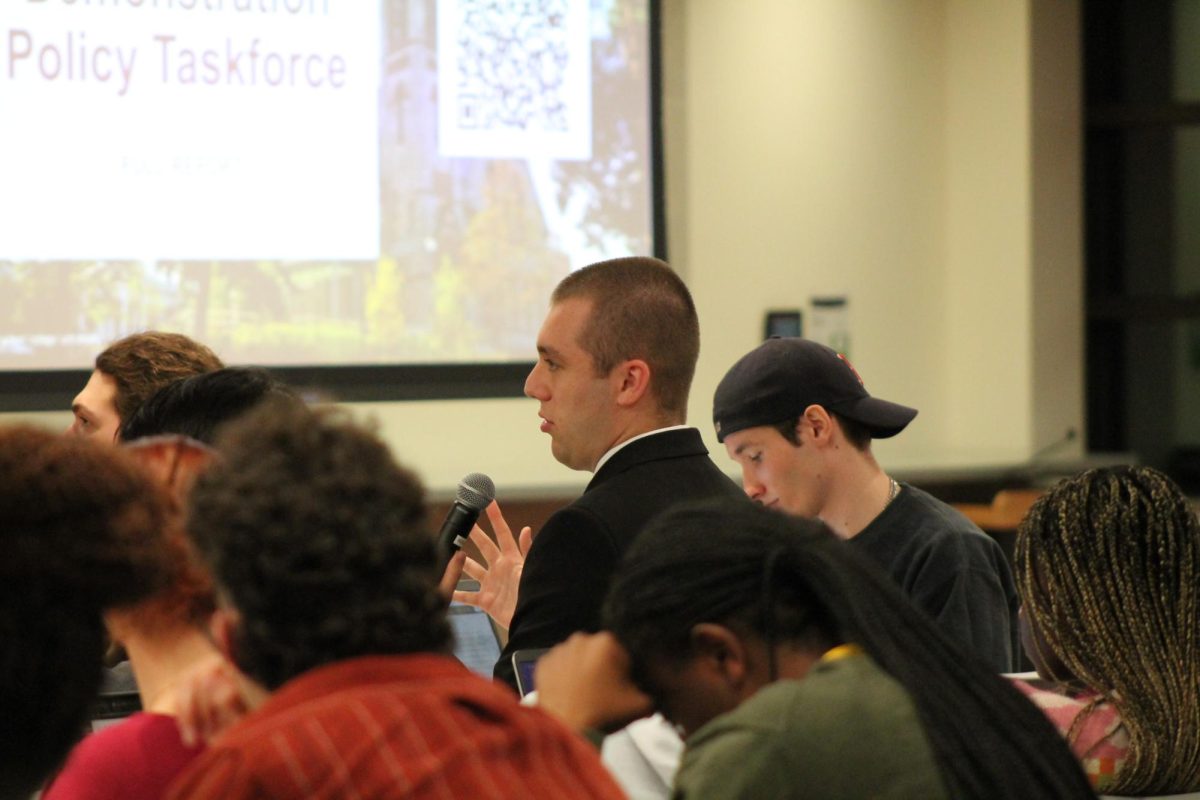
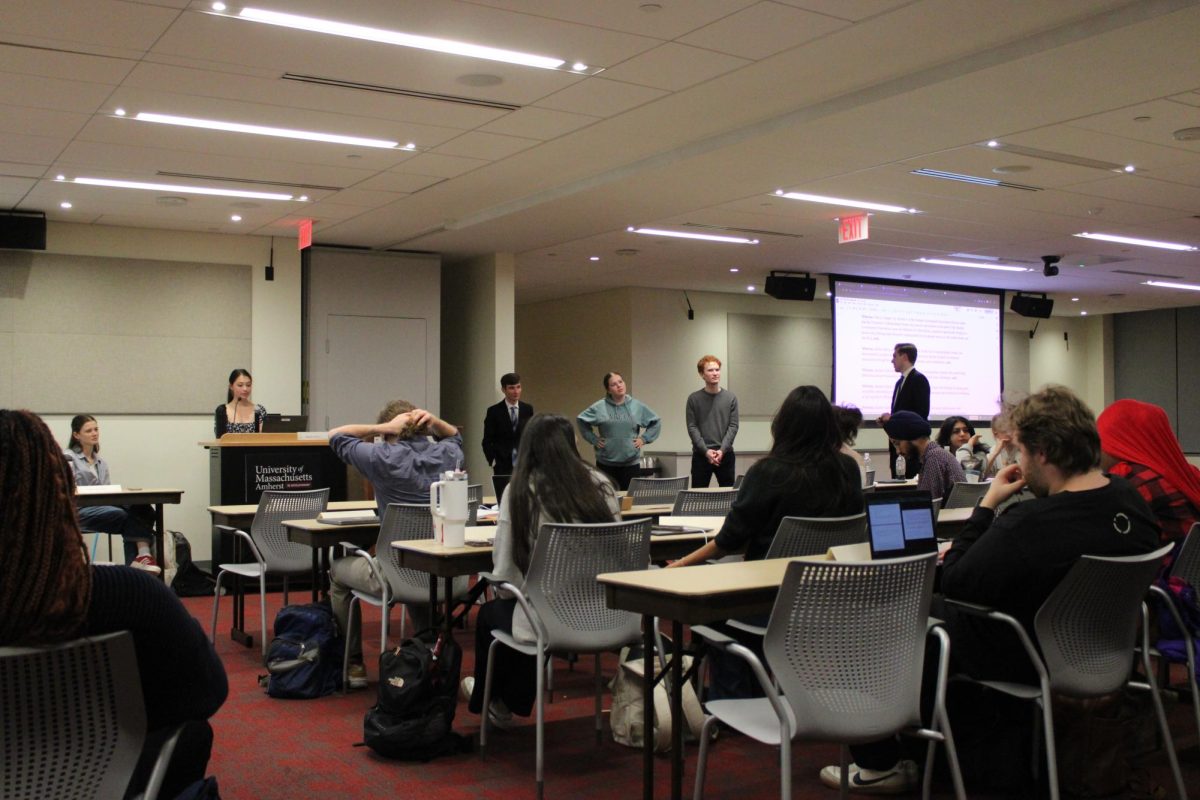
Ed • Feb 16, 2012 at 2:40 pm
That is news if MASSPurg got fined $50 for chalk — under what rule is that one done?
Do tell more — i know folk who will be very interested!
aiciacA • Feb 15, 2012 at 5:21 pm
Dominoes simply didn’t get caught, it’s not a conspiracy.
Acacia • Feb 15, 2012 at 12:56 pm
I find it interesting how Dominos doesn’t get in trouble for slipping menus under doors but MASSPIRG got fined $50 for writing on the ground with sidewalk chalk.
Emily • Feb 15, 2012 at 12:33 pm
Probably worth mentioning that the SGA Twitter account only has less than 300 followers, so it doesn’t really reach that many students. Hence the need for dormstorming – by far the best way to engage with other kids.
USA • Feb 15, 2012 at 10:08 am
What about MY right to now be bothered by every moonbat or tea bagger that wants to push THEIR agenda on me???
This is what the Student Union is for